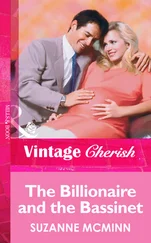Somerset Maugham - The Moon and Sixpence
Здесь есть возможность читать онлайн «Somerset Maugham - The Moon and Sixpence» весь текст электронной книги совершенно бесплатно (целиком полную версию без сокращений). В некоторых случаях можно слушать аудио, скачать через торрент в формате fb2 и присутствует краткое содержание. Жанр: Классическая проза, на английском языке. Описание произведения, (предисловие) а так же отзывы посетителей доступны на портале библиотеки ЛибКат.
- Название:The Moon and Sixpence
- Автор:
- Жанр:
- Год:неизвестен
- ISBN:нет данных
- Рейтинг книги:5 / 5. Голосов: 1
-
Избранное:Добавить в избранное
- Отзывы:
-
Ваша оценка:
- 100
- 1
- 2
- 3
- 4
- 5
The Moon and Sixpence: краткое содержание, описание и аннотация
Предлагаем к чтению аннотацию, описание, краткое содержание или предисловие (зависит от того, что написал сам автор книги «The Moon and Sixpence»). Если вы не нашли необходимую информацию о книге — напишите в комментариях, мы постараемся отыскать её.
The Moon and Sixpence — читать онлайн бесплатно полную книгу (весь текст) целиком
Ниже представлен текст книги, разбитый по страницам. Система сохранения места последней прочитанной страницы, позволяет с удобством читать онлайн бесплатно книгу «The Moon and Sixpence», без необходимости каждый раз заново искать на чём Вы остановились. Поставьте закладку, и сможете в любой момент перейти на страницу, на которой закончили чтение.
Интервал:
Закладка:
"Brutes," I said.
" Mais non, mon cher monsieur , men are always the same. Fear makes them cruel.... I decided to see Strickland, and when I had finished with the chiefess asked for a boy to show me the way. But none would accompany me, and I was forced to find it alone."
When Dr. Coutras arrived at the plantation he was seized with a feeling of uneasiness. Though he was hot from walking, he shivered. There was something hostile in the air which made him hesitate, and he felt that invisible forces barred his way. Unseen hands seemed to draw him back. No one would go near now to gather the cocoa-nuts, and they lay rotting on the ground. Everywhere was desolation. The bush was encroaching, and it looked as though very soon the primeval forest would regain possession of that strip of land which had been snatched from it at the cost of so much labour. He had the sensation that here was the abode of pain. As he approached the house he was struck by the unearthly silence, and at first he thought it was deserted. Then he saw Ata. She was sitting on her haunches in the lean-to that served her as kitchen, watching some mess cooking in a pot. Near her a small boy was playing silently in the dirt. She did not smile when she saw him.
"I have come to see Strickland," he said.
"I will go and tell him."
She went to the house, ascended the few steps that led to the verandah, and entered. Dr. Coutras followed her, but waited outside in obedience to her gesture. As she opened the door he smelt the sickly sweet smell which makes the neighbourhood of the leper nauseous. He heard her speak, and then he heard Strickland's answer, but he did not recognise the voice. It had become hoarse and indistinct. Dr. Coutras raised his eyebrows. He judged that the disease had already attacked the vocal chords. Then Ata came out again.
"He will not see you. You must go away."
Dr. Coutras insisted, but she would not let him pass. Dr. Coutras shrugged his shoulders, and after a moment's rejection turned away. She walked with him. He felt that she too wanted to be rid of him.
"Is there nothing I can do at all?" he asked.
"You can send him some paints," she said. "There is nothing else he wants."
"Can he paint still?"
"He is painting the walls of the house."
"This is a terrible life for you, my poor child."
Then at last she smiled, and there was in her eyes a look of superhuman love. Dr. Coutras was startled by it, and amazed. And he was awed. He found nothing to say.
"He is my man," she said.
"Where is your other child?" he asked. "When I was here last you had two."
"Yes; it died. We buried it under the mango."
When Ata had gone with him a little way she said she must turn back. Dr. Coutras surmised she was afraid to go farther in case she met any of the people from the village. He told her again that if she wanted him she had only to send and he would come at once.
Chapter LVI
Then two years more went by, or perhaps three, for time passes imperceptibly in Tahiti, and it is hard to keep count of it; but at last a message was brought to Dr. Coutras that Strickland was dying. Ata had waylaid the cart that took the mail into Papeete, and besought the man who drove it to go at once to the doctor. But the doctor was out when the summons came, and it was evening when he received it. It was impossible to start at so late an hour, and so it was not till next day soon after dawn that he set out. He arrived at Taravao, and for the last time tramped the seven kilometres that led to Ata's house. The path was overgrown, and it was clear that for years now it had remained all but untrodden. It was not easy to find the way. Sometimes he had to stumble along the bed of the stream, and sometimes he had to push through shrubs, dense and thorny; often he was obliged to climb over rocks in order to avoid the hornet-nests that hung on the trees over his head. The silence was intense.
It was with a sigh of relief that at last he came upon the little unpainted house, extraordinarily bedraggled now, and unkempt; but here too was the same intolerable silence. He walked up, and a little boy, playing unconcernedly in the sunshine, started at his approach and fled quickly away: to him the stranger was the enemy. Dr. Coutras had a sense that the child was stealthily watching him from behind a tree. The door was wide open. He called out, but no one answered. He stepped in. He knocked at a door, but again there was no answer. He turned the handle and entered. The stench that assailed him turned him horribly sick. He put his handkerchief to his nose and forced himself to go in. The light was dim, and after the brilliant sunshine for a while he could see nothing. Then he gave a start. He could not make out where he was. He seemed on a sudden to have entered a magic world. He had a vague impression of a great primeval forest and of naked people walking beneath the trees. Then he saw that there were paintings on the walls.
" Mon Dieu , I hope the sun hasn't affected me," he muttered.
A slight movement attracted his attention, and he saw that Ata was lying on the floor, sobbing quietly.
"Ata," he called. "Ata."
She took no notice. Again the beastly stench almost made him faint, and he lit a cheroot. His eyes grew accustomed to the darkness, and now he was seized by an overwhelming sensation as he stared at the painted walls. He knew nothing of pictures, but there was something about these that extraordinarily affected him. From floor to ceiling the walls were covered with a strange and elaborate composition. It was indescribably wonderful and mysterious. It took his breath away. It filled him with an emotion which he could not understand or analyse. He felt the awe and the delight which a man might feel who watched the beginning of a world. It was tremendous, sensual, passionate; and yet there was something horrible there, too, something which made him afraid. It was the work of a man who had delved into the hidden depths of nature and had discovered secrets which were beautiful and fearful too. It was the work of a man who knew things which it is unholy for men to know. There was something primeval there and terrible. It was not human. It brought to his mind vague recollections of black magic. It was beautiful and obscene.
" Mon Dieu , this is genius."
The words were wrung from him, and he did not know he had spoken.
Then his eyes fell on the bed of mats in the corner, and he went up, and he saw the dreadful, mutilated, ghastly object which had been Strickland. He was dead. Dr. Coutras made an effort of will and bent over that battered horror. Then he started violently, and terror blazed in his heart, for he felt that someone was behind him. It was Ata. He had not heard her get up. She was standing at his elbow, looking at what he looked at.
"Good Heavens, my nerves are all distraught," he said. "You nearly frightened me out of my wits."
He looked again at the poor dead thing that had been man, and then he started back in dismay.
"But he was blind."
"Yes; he had been blind for nearly a year."
Chapter LVII
AT that moment we were interrupted by the appearance of Madame Coutras, who had been paying visits. She came in, like a ship in full sail, an imposing creature, tall and stout, with an ample bust and an obesity girthed in alarmingly by straight-fronted corsets. She had a bold hooked nose and three chins. She held herself upright. She had not yielded for an instant to the enervating charm of the tropics, but contrariwise was more active, more worldly, more decided than anyone in a temperate clime would have thought it possible to be. She was evidently a copious talker, and now poured forth a breathless stream of anecdote and comment. She made the conversation we had just had seem far away and unreal.
Читать дальшеИнтервал:
Закладка:
Похожие книги на «The Moon and Sixpence»
Представляем Вашему вниманию похожие книги на «The Moon and Sixpence» списком для выбора. Мы отобрали схожую по названию и смыслу литературу в надежде предоставить читателям больше вариантов отыскать новые, интересные, ещё непрочитанные произведения.
Обсуждение, отзывы о книге «The Moon and Sixpence» и просто собственные мнения читателей. Оставьте ваши комментарии, напишите, что Вы думаете о произведении, его смысле или главных героях. Укажите что конкретно понравилось, а что нет, и почему Вы так считаете.










